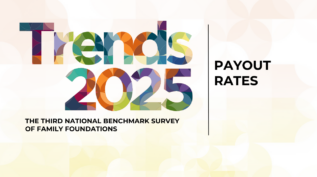How Family Philanthropies Can Support Community Organizing to Strengthen the Fabric of US Democracy
Posted on June 17, 2025 by Loren McArthur

Family philanthropy is uniquely positioned to support a healthy democracy by funding community organizing, which often aligns well with their values and can fill funding gaps in meaningful ways, argues Loren McArthur. Many family donors are worried about the state of American democracy. Today, just 34 percent of Americans are satisfied with the way democracy is working in the United… Read More






